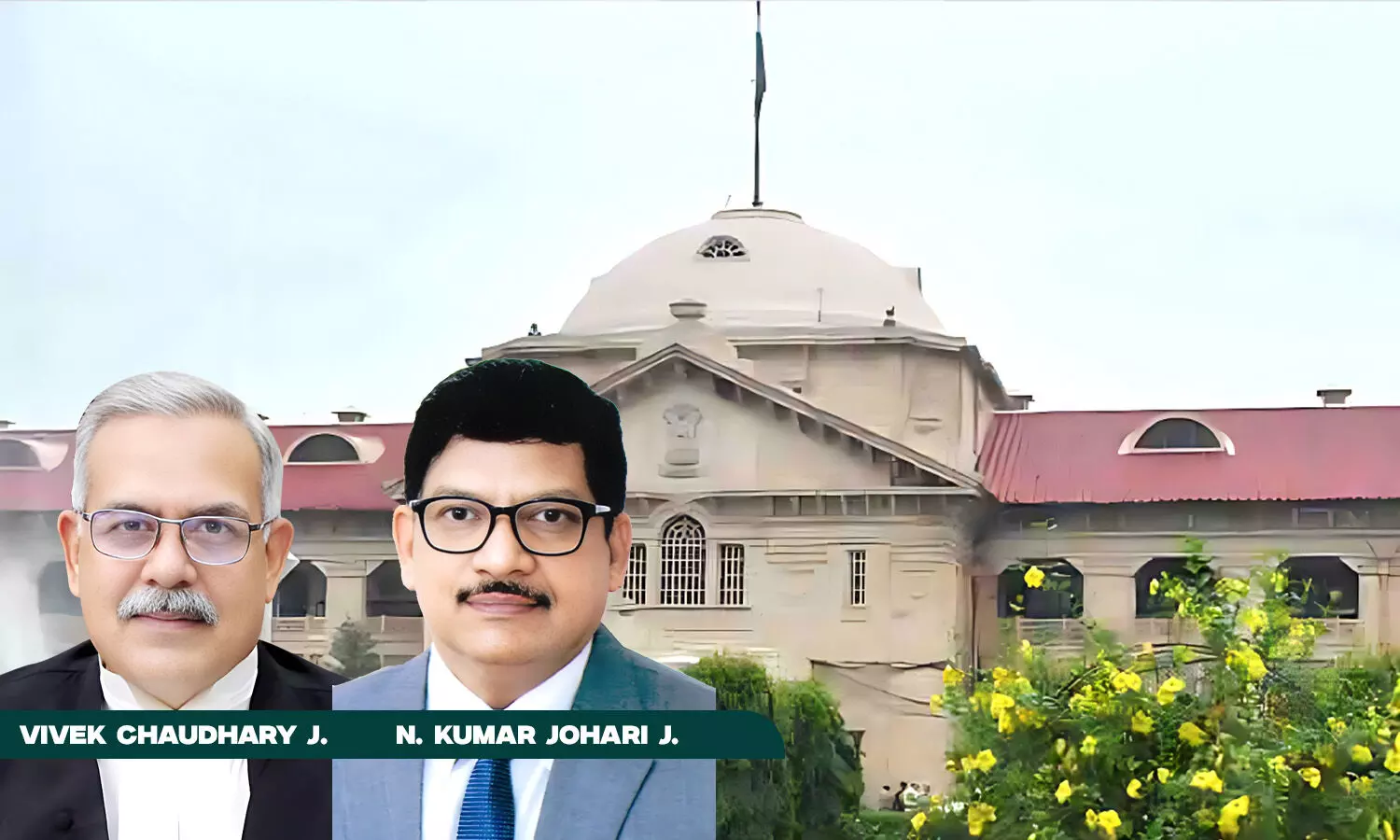
Anticipatory Bail Application Cannot Be Entertained In Cases Where Offence Is Punishable By Death; UP Amendment Of CrPC Prohibits It: Allahabad HC
 |
|The Allahabad High Court observed that anticipatory bail application cannot be entertained in cases in Uttar Pradesh where offence is punishable by death sentence.
The Court said that while the statutory bar is absolute, it is not for the Courts to rewrite the law or create exceptions to a legislative mandate that is unequivocal.
The Court was hearing a Criminal Miscellaneous Bail Application in which a single judge referred the question of whether Section 438(6)(b) Cr.P.C., as applicable in Uttar Pradesh, imposes an absolute bar on anticipatory bail for offences punishable by death, or if this bar only applies when the Court determines, based on the facts, that the case warrants the death penalty.
The bench of Justice Vivek Chaudhary and Justice Narendra Kumar Johari observed, “the State amendment explicitly prohibits anticipatory bail for offences punishable by death sentence.”
Advocate Murli Manohar Srivastava appeared for the Appellant and Advocate Sumit Kumar Srivastava appeared for the Respondent.
The Court observed, “…when the words of a statute are clear and unambiguous, Courts must give effect to the legislative intent/literal interpretation. In this context, the wording of the State amendments leaves no room for judicial discretion in granting anticipatory bail for offences punishable by death sentence. The prohibition is absolute and does not allow for exceptions based on the nature of the offence or the facts of the case.”
The Court mentioned the decision of the Supreme Court in Sachidananda Banerjee, Assistant Collector of Customs, Calcutta vs. Sitaram Agarwala and another, 1965 and quoted, “The second rule of construction equally well settled is that a court cannot construe a section of a statute with reference to that of another unless the latter is in pari materia with the former. It follows that decisions made on a provision of a different statute in India or elsewhere will be of no relevance unless the two statutes are in pari materia. Any deviation from this rule will destroy the fundamental principle of construction, namely, the duty of a court is to ascertain the expressed intention of the legislature.”
“Any perceived hardship or injustice that may arise from the strict application of the statutory bar is a matter for the legislature to address through amendment. It is not for the Courts to fill perceived gaps in the law by exercising discretion contrary to the express provisions of the statute.”, the Court said.
Accordingly, the Court was of the opinion that no judicial discretion can be exercised to entertain anticipatory bail application in cases where the offence is punishable by the death penalty.
Cause Title: Jitendra Pratap Singh v. State Of U.P
Appearance:
Appellant: Advocates Murli Manohar Srivastava and Upmanyu Srivastava
Respondent: Advocate Sumit Kumar Srivastava